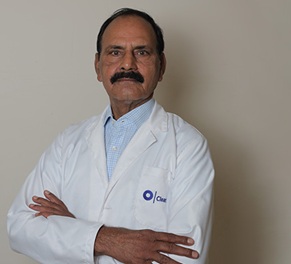Haemorrhoidectomy - Procedure, Benefits and Recovery

Treatment Duration
20 Minutes
------ To ------30 Minutes
Treatment Cost
₹ 35,000
------ To ------₹ 1,10,000

You can check Haemorrhoidectomy Cost here.
What is hemorrhoidectomy?
- A haemorrhoidectomy is a surgical procedure to treat Internal or External haemorrhoids.
- Haemorrhoids, often referred to as piles, are bulging veins in the lower rectum and anus. They are responsible for causing irritation, bleeding, and pain.
- Usually, individuals can improve their symptoms with mostly diet and lifestyle and over-the-counter medications. However, severe haemorrhoids can significantly degrade one's wellbeing
Haemorrhoidectomy Videos by HexaHealth
Expert Doctors (10)
NABH Accredited Hospitals (10)
Haemorrhoidectomy Success Stories


Benefits of Hemorrhoidectomy
- Surgical treatments for Haemorrhoids result in good results as compared to conservative methods, especially for grade3 and grade4 Haemorrhoids.
- Laser method for treatment of Haemorrhoids is a minimaly invasive procedure, with quick recovery and no scar.
- Wound healing is more easy and quick as compared to conventional method for Pilles removal
Who needs Haemorrhoidectomy?
The indications of haemorrhoids are mostly on the basis of the kind of haemorrhoid:
External Haemorrhoids
- Bleeding
- Swelling around the anus
- Pain
- Itching near the anus
- Discomfort
Internal Haemorrhoids
- Painless bleeding during defecating
- Rectal bleeding
- Tissues bulging out of the anus
Prolapsed Haemorrhoids
- Severe pain or discomfort
- Swelling around the anus
- Inflammation or itching around the anal canal
The major cause of haemorrhoids is straining, which lays pressure on the veins of the anus/rectum. Strain can occur by:
- Heavy lifting
- Pushing hard to defecate during constipation
- Pelvic pressure from weight gain, specifically during the gestation period.
Haemorrhoidectomies are often intended for most extreme circumstances, or after all, lesser invasive alternative therapies have been exhausted.
Some of gentler therapies are:
- Lifestyle modification: Regularly exercising without putting strain on your body and following a healthy diet.
- Symptom relief therapy: It includes oral medicines, stool softeners, and topicals.
- Non-surgical options: sclerotherapy, coagulation, rubber band ligation, external haemorrhoid thrombectomy.
Your doctor might advise you of surgery if:
- Your haemorrhoids are severe and cause a lot of discomforts
- Internal haemorrhoids are strangulated
- External haemorrhoids are swollen due to a clot
- You have internal and external or prolapsed haemorrhoids
- You need surgery for other anorectal conditions
Hemorrhoidectomy procedure
Procedure Decription
It is mostly an outpatient procedure and can be performed at a doctor's clinic or even in hospitals.
The purpose of this surgery is to eliminate haemorrhoids. Based on your health, there is more than one way to carry out the haemorrhoidectomy-
- Stapled haemorrhoidectomy
- Haemorrhoidal artery ligation and rectal anal repair (HAL-RAR)
- Laser haemorrhoidectomy.
In HAL-RAR :
- A small Doppler sensor is introduced into the anus to locate the arteries providing blood to haemorrhoids.
- The healthcare professional can identify the arteries supplying the haemorrhoids and block off the blood flow by tying them off.
- Most of the haemorrhoids are reduced immediately and are no longer evident after a few weeks.
In stapled haemorrhoidectomy:
- The surgeon will relocate the haemorrhoids and cut off their blood supply with a stapler-like device. They'll crumble and end up dying if they don't get any blood.
- -It can be used to treat haemorrhoids that have prolapsed or slipped out of the anus.
- -Because the haemorrhoid is moved to a location with fewer nerve endings, it hurts less than a standard haemorrhoidectomy.
- -You'll also heal more quickly and have less bleeding and itching. There are also less difficulties in general.
Laser haemorrhoidectomy
- It is a procedure in which the surgeon burns the enlarged haemorrhoids to shrink them.
- Alternatively, the surgeon could utilise a small laser beam to focus exclusively on the haemorrhoid and spare the surrounding tissues.
- It is painless, causes little bleeding, prevents recurrence and a speedy recovery.
Consult your doctor to determine which procedure is best for you.
Before the Surgery
- Your doctor will review the procedure and every aspect related to it.
- Your doctor will verify if you have any allergies to anaesthesia.
- He will study your medical history and examine your overall health condition.
- He might ask you to stop smoking for a specific period as it delays the healing.
- The doctor will also ask you to stop eating, which is usually 6 to 8 hours before surgery
- You must ask your doctor about your case severity and recovery period.
On the day of the Surgery
- In the morning, the anaesthetists will come and review your anaesthesia.
- The healthcare staff will examine all the necessary basic parameters like body temperature, blood pressure, heart rate, blood glucose level, etc.
During the Surgery
- Your doctor will insert an IV into your arm to prevent infection/swelling.
- For a painless procedure, the anaesthetists will give either general/local anaesthesia.
- A precise examination of internal haemorrhoids is carried out by inserting a scope into the anal canal.
- The surgeon removes the haemorrhoid via scalpel/laser and closes the wound.
- If closing the wound becomes complicated for the patient, then the surgeon leaves the wound un-sutured.
Recovery and post Care after the Hemorrhoidectomy procedure
After Surgery
- After the successful surgery, you are kept under observation for some period. You are discharged after the effect of anaesthesia is over.
- In case your surgery was a little complicated, your doctor might keep you under observation at the hospital overnight.
- Severe complications after the surgery are rare. However, you might observe the following after the surgery:
- Pain, irritation
- Bleeding
- Infection
- Bruising
- Unusual discharge
- Soreness
- Reaction to anaesthesia
- The healing period might be up to 6 weeks, varying upon your case.
DO'S and Don'ts after the surgery:
- Stay well-hydrated
- Consume high fibrous food
- Can take painkillers
- Regular warm bath
- Applying ice packs near the anus
- Taking stool softeners to avoid constipation and straining
- Avoid sitting for long
- Avoid straining your body
- Avoid heavy lifting
- Avoid smoking
First, follow up Appointment
- If everything goes normal and as expected, then you will be expected to revisit after a week for re-examination.
- The doctor will ask you about the signs you are experiencing after the surgery.
- The doctor will prescribe you medicines in case you face any discomfort.
Risk and Complication of Procedure
When to Consult a Doctor
- You should consult a doctor if:
- You experience high bleeding
- You are unable to pee/defecate
- Have a constant high fever
- Your pain increases
- Your body shows an adverse reaction to anaesthesia
Haemorrhoidectomy Cost Videos
More Treatment options
Last Updated on: 18 October 2022
Author
HexaHealth Care Team
HexaHealth Care Team brings you medical content covering many important conditions, procedures falling under different medical specialities. The content published is thoroughly reviewed by our panel of qualified doctors for its accuracy and relevance.
Latest Health Articles











































